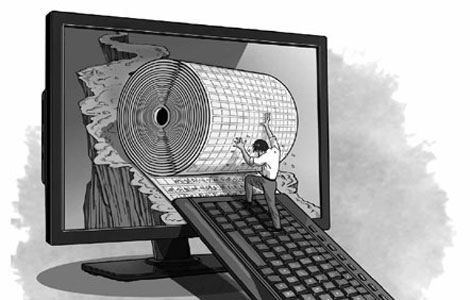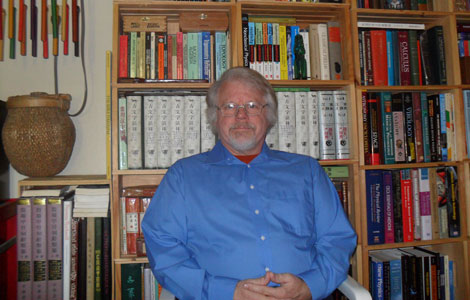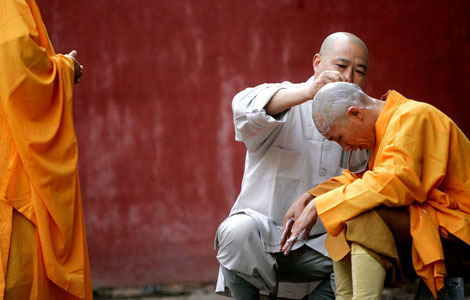CPC's stance on religious belief
Updated: 2013-10-10 15:08
(China Daily)
|
||||||||
Although social circumstances have changed markedly since China implemented its reform and opening-up policy more than three decades ago, the Communist Party of China's stance on its members' belief in Communism has not changed since the Party was founded in 1921.
The Party Central Committee has clearly and repeatedly stated that members are prohibited from believing in religion or participating in religious activities. Those who refuse to adhere to the rules are usually persuaded to withdraw from the Party.
At the National Conference on Publicity and Ideology, held in Beijing on Aug 19 and 20, Party chief Xi Jinping called on CPC members and officials to believe firmly in Marxism and Communism and to apply a down-to-earth approach to their work.
According to Xinhua News Agency, Xi stressed that officials, especially those in the upper echelons of power, should grasp the fundamental theories of Marxism and study Marxism-Leninism, Mao Zedong Thought, Deng Xiaoping Theory, The Thought of Three Represents and the Scientific Outlook on Development.
In addition, Zhu Weiqun, executive vice-minister of the United Front Work Department of the Party Central Committee, published an article entitled "Party members can't be religious".
"The article was just a response to the situation that some Party members believe in religion rather than science. As far as I know, very few opposed (my idea) openly inside the Party, but I know a lot of people are not happy with it," Zhu told China Newsweek earlier this year.
He listed a number of reasons for maintaining the rule for Party members, pointing out that the Party's worldview is based on dialectical materialism, which is the cornerstone of all the Party's theories and practices. He also explained that allowing Party members to practice religion could cause a conflict of interest if they believe they should follow the basic tenets of their religion ahead of Party policy.
Zhu said the principle doesn't contradict the freedom of religion. "When a person chooses to be a Party member of their own free will, it means he or she chooses to be nonreligious. By the same principle, he or she can quit the Party and be religious," he said.
-Ji Zhebu
(China Daily USA 10/10/2013 page7)
Most Viewed
Editor's Picks

|

|

|

|

|

|
Today's Top News
Kerry says US will work to end fiscal crisis
Trending news across China
Americans to name panda cubs at Atlanta zoo
US investors say they are less bullish on China
Obama remarks show China high on agenda
Hong Kong benefits from rising renminbi
WB chief praises China for reforms
China is a major contributor to global growth
US Weekly

|

|















